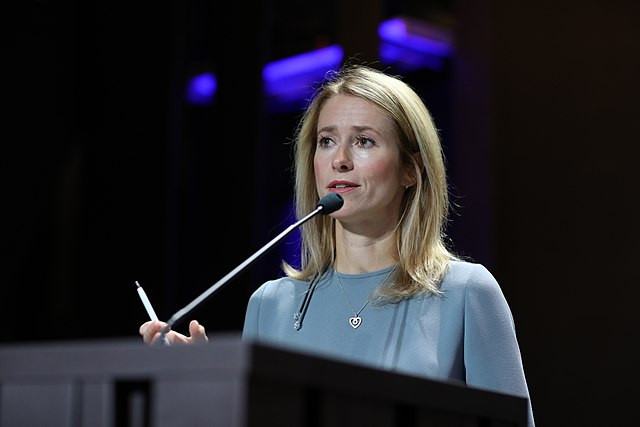Russia has added Estonia's Prime Minister, Kaja Kallas, to its wanted list. The inclusion comes in response to the Baltic nations' efforts to dismantle Soviet-era World War II monuments, seen by many in these countries as symbols of Soviet occupation.
According to The Associated Press, Kallas' name now appears on the Russian Interior Ministry's list, flagged for unspecified criminal charges. The revelation was initially made by the independent Russian news outlet Mediazona, noting that Kallas has been on the list for some time, alongside numerous officials and lawmakers from Latvia and Lithuania.
The removal of Soviet monuments in Estonia, Latvia, and Lithuania- all NATO members-reflects a broader effort to shed the remnants of their Soviet past. This campaign has gained momentum following Russia's invasion of Ukraine, with similar actions taken in Poland and the Czech Republic against monuments honoring Red Army soldiers. Moscow has criticized these actions, interpreting them as an affront to the memory of those who fought against Nazi Germany.
In defiance of Russia's actions, Prime Minister Kallas vowed on social media platform X to persist in her staunch support for Ukraine and to advocate for enhanced European defense capabilities. "The Kremlin now hopes this move will help to silence me and others - but it won't," Kallas stated, expressing no surprise at Russia's decision.
The Russian Investigative Committee, led by Alexander Bastrykin, has launched a criminal probe into the dismantling of the monuments, with Russian Foreign Ministry spokeswoman Maria Zakharova hinting at further repercussions. "Crimes against the memory of the world's liberators from Nazism and fascism must be prosecuted," Zakharova declared, signaling a potential escalation in measures against those involved in the removals.
Apart from Kallas, the Russian list includes prominent figures such as Estonian State Secretary Taimar Peterkop, Lithuanian Culture Minister Simonas Kairys, and numerous members of the former Latvian parliament. Kairys, responding to the development, interpreted the arrest order as recognition of his principled stance against the Soviet legacy.
The Baltic states, annexed by the Soviet Union in 1940 and regaining independence with the Soviet collapse in 1991, have seen their relationships with Moscow deteriorate significantly since the onset of the Ukraine war. As members of the European Union and NATO, Estonia, Latvia, and Lithuania's actions reflect a concerted effort to reconcile with their historical narratives while navigating the complexities of contemporary geopolitics.
This recent move by Russia underscores the enduring sensitivities surrounding the Soviet legacy in the Baltic region and the geopolitical rifts that continue to define relations between Russia and its former satellite states.






